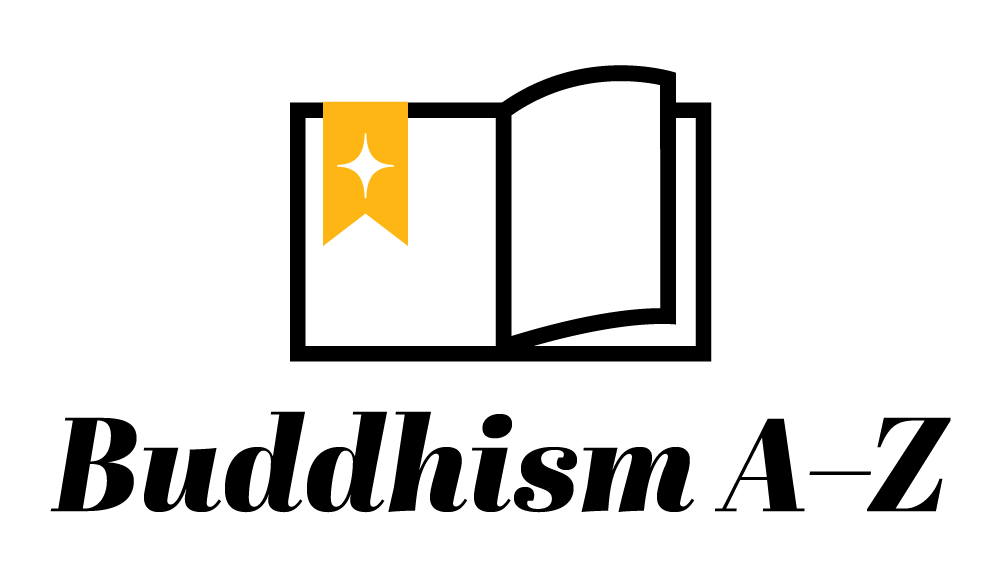The Abhidhamma is a collection of teachings, or suttas that essentially form Buddhism’s map of the mind. It is the third section of the Pali Canon, or Tripitaka, a body of scriptures attributed to the historical Buddha that is central to the Theravada school of Buddhism. The Abhidhamma Pitaka is the “systematic philosophy” section of the “three baskets” within the canon, representing the earliest compilation of Buddhist philosophy and psychology detailing Buddhist doctrines about the nature of reality and mind. The Pali Canon also contains the Vinaya Pitaka (rules for monastics), and the Sutta Pitaka (discourses of the Buddha and his principal disciples).
In Pali, abhi means “higher” or “further,” while dhamma refers to the teachings, principles, and truths. The term “Abhidhamma” can then be translated to “Higher Dhamma” or “Further Truths.” Made up of seven books, the Abhidhamma teachings explore various aspects of human experience, including the nature of consciousness, universal mental factors, the cultivation of mindfulness, elements of existence, and the processes that shape individual and collective experiences. According to tradition, the Abhidhamma was formulated by the Buddha in the fourth week following his enlightenment.
As Bhikku Bodhi writes in “Abhidhamma Dissects the Mind,” behind its complexity of lists and analyses, the Abhidhamma offers us three simple overarching guidelines: “Abstaining from all evil, developing the wholesome, and purifying one’s own mind — this is the Buddha’s instruction.”
Features of the Abhidhamma
Detailed Analysis
The Abhidhamma provides an intricate and meticulous analysis of the mind and reality, breaking down mental and physical experiences into their fundamental components. It provides meticulous classifications, enumerations, lists, and definitions that illuminate the intricate workings of consciousness and reality as taught by the Buddha.
Systematic Approach
The Abhidhamma presents its teachings in a systematic and logical framework. It categorizes mental factors, consciousness, natural laws, material forms, causal relations, and other phenomena into distinct categories and presents an understanding of the interrelations between them.
Psychological Emphasis
The Abhidhamma is known as “Buddhism’s map of the mind” for a reason. It delves deep into the workings of the mind, exploring the nature of consciousness and the mental processes that shape our experience. Through the teachings contained within it, the Abhidhamma provides insights into the mind and how its processes contribute to suffering. This deep psychological analysis offers those who study the Abhidhamma with a toolkit for understanding their own experiences and mental states.
Practical Applications
While Abhidhamma is highly analytical and theoretical, it also has practical applications. It provides practitioners with a deep understanding of the mind and reality, enabling them to develop insight, wisdom, and a pathway toward liberation from suffering. Through its wisdom, we learn to assess our thoughts, emotions, and intentions, allowing us to cultivate mindfulness, wholesome qualities, and develop ethics that align with our path.
The Abhidhamma in Advanced Buddhist Study & Practice
The Abhidhamma is primarily studied and practiced by monastics, scholars, and serious practitioners seeking a detailed understanding of Buddhist teachings and the Buddhist view of mind. Within Theravada monastic communities, the study of Abhidhamma can play a key role in the training of monks and nuns, providing them with a comprehensive understanding of the dharma that can be useful for resolving doctrinal questions and clarifying points of practice.
Overall, the Abhidhamma provides an important framework for in-depth analysis and exploration of the nature of existence and mind, contributing to the development of insight and wisdom for practitioners, scholars, and monastics alike on the path to liberation.
Buddhism A–Z
Explore essential Buddhist terms, concepts, and traditions.

